The Book of Abstracts PDF
The abstracts of keynote speakers – in alphabetical order
MIEJSCE MEDIACJI W CERTYFIKOWANIU KOMPETENCJI JĘZYKOWYCH
Prof. Radosław Kucharczyk
The Institute of French Studies/ the University of Warsaw, Poland
Pojęcie mediacji jest pojęciem stosunkowo nowym dla dydaktyki nauczania języków obcych. Pojawia się ono w 2001 r. jako jedno z działań językowych (obok działań receptywnych, produktywnych oraz interakcyjnych) wyróżnionych przez twórców Europejskiego Systemu Opisu Kształcenia Językowego. Nie da się ukryć, że w tym dokumencie mediacja jest opisana dość pobieżnie. Obejmuje ona takie działania dydaktyczne, jak tłumaczenie (ustne i pisemne), przetwarzanie tekstów (przede wszystkim specjalistycznych) oraz ich streszczanie. Również strategie umożliwiające użytkownikowi języka działania mediacyjne są potraktowane „po macoszemu”, ponieważ autorzy ESOKJ wymieniają kilka nielicznych (i w niewielkim stopniu zoperacjonalizowanych strategii) ułatwiających użytkownikowi języka działania mediacyjne. Brakuje również deskryptorów działań mediacyjnych dla poszczególnych poziomów biegłości językowej. Dopiero wraz z pojawieniem się w 2018 r. uzupełniającej wersji ESOKJ pojęcie mediacji zyskuje na znaczeniu, a jej definicja obejmuje nowe – dotychczas pomijane w piśmiennictwie glottodydaktycznym – obszary. Autorzy dokumentu wyróżniają trzy główne obszary działań mediacyjnych: mediację tekstu, mediację pojęć oraz mediację komunikacji. Ponadto uściślają i operacjonalizują strategie mediacyjne. Co więcej, dla każdego z poziomów biegłości językowej proponują deskryptory działań mediacyjnych. Można więc przyjąć, że mediacja staje się pełnoprawną sprawnością językową, którą należy rozwijać w czasie procesu kształcenia językowego.
W niniejszym referacie postaramy się odpowiedzieć na pytanie, jaką rolę odgrywa mediacja w procesie certyfikowania kompetencji językowych, a dokładniej czy stanowi ona jedną z technik oceniania sprawności komunikacyjnych (słuchanie, czytanie) lub językowych (gramatyka, słownictwo), czy jest niezależną sprawnością podlegającą ocenie.
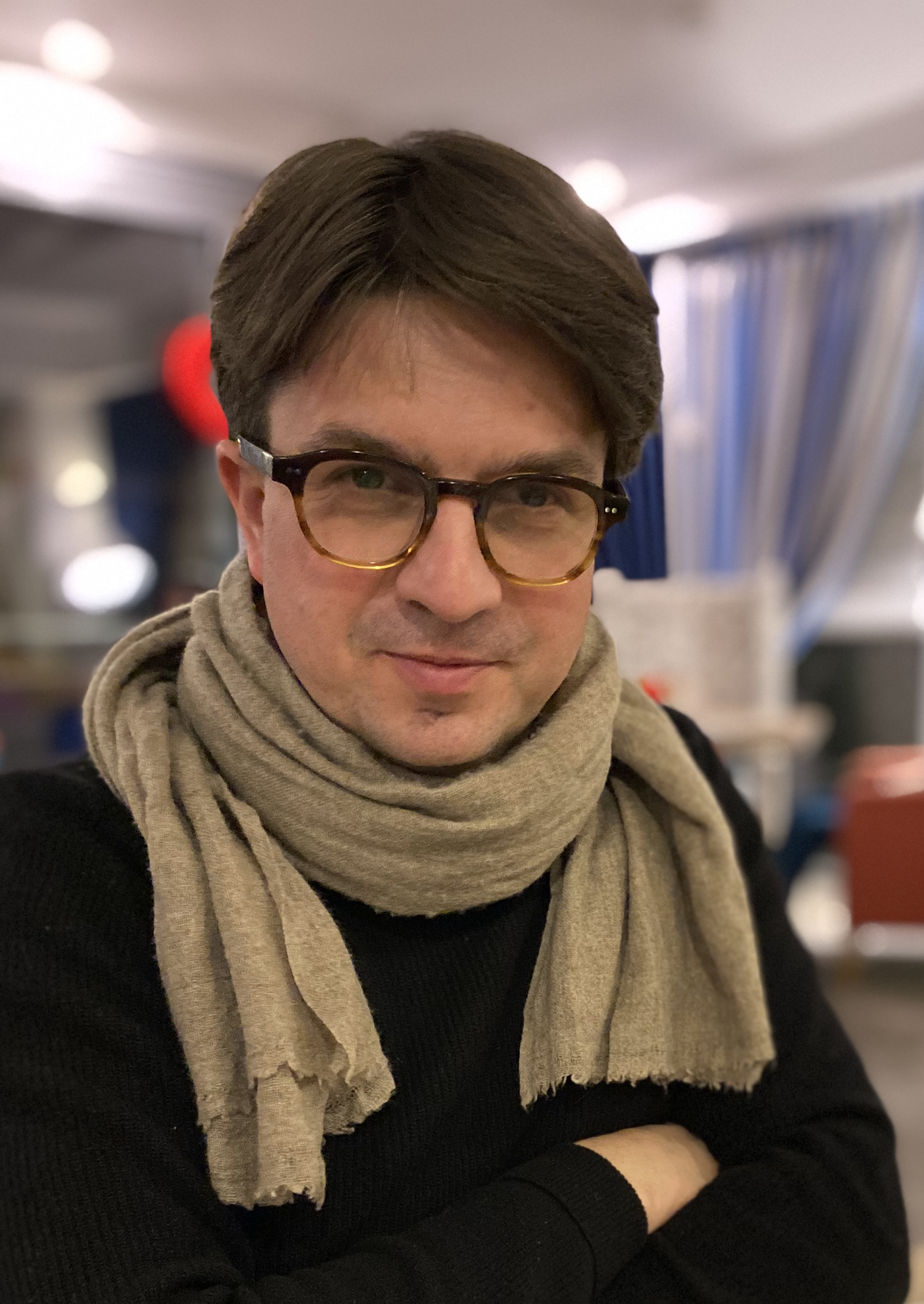 Prof. Radosław Kucharczyk graduated from the Institute of French Studies at the University of Warsaw, where he is currently an Assistant Professor at the Department of Methodology of French Teaching. He conducts specialised courses in Foreign Language Teaching Methodology and Practical French courses. He also works as a French teacher at Narcyza Żmichowska High School (with Bilingual classes) in Warsaw. In his research, he focuses on the implementation of the European Language Policy (e.g. multilingual competence, mediation, etc.) in various educational contexts. Since 2020, he has been Chairman of the Warsaw University Council for the Certification of Language Proficiency. He is a member of the group of experts responsible for the state review and approval of French Language school textbooks at the Polish Ministry of National Education. Prof. Radosław Kucharczyk is also an expert of the Polish Central Examination Board (CKE)
Prof. Radosław Kucharczyk graduated from the Institute of French Studies at the University of Warsaw, where he is currently an Assistant Professor at the Department of Methodology of French Teaching. He conducts specialised courses in Foreign Language Teaching Methodology and Practical French courses. He also works as a French teacher at Narcyza Żmichowska High School (with Bilingual classes) in Warsaw. In his research, he focuses on the implementation of the European Language Policy (e.g. multilingual competence, mediation, etc.) in various educational contexts. Since 2020, he has been Chairman of the Warsaw University Council for the Certification of Language Proficiency. He is a member of the group of experts responsible for the state review and approval of French Language school textbooks at the Polish Ministry of National Education. Prof. Radosław Kucharczyk is also an expert of the Polish Central Examination Board (CKE)
THE CONCEPT OF MEDIATION IN THE CEFR-COMPANION VOLUME 2020: REACHING OUT BEYOND LANGUAGE EDUCATION
Prof. Waldemar Martyniuk
The Institute of Polish Language and Culture for Foreigners,
the Jagiellonian University, Krakow, Poland
The Common European Framework of Reference for Languages – CEFR (Council of Europe 2001) has served the language education community in Europe and beyond for over twenty years now. Published by the Language Policy Division of the Council of Europe as a draft in 1998 and in its final, English and French versions in 2001, the document quickly gained the status of a standard European reference for learning, teaching, and assessment in foreign language education. Translated by now (June 2021) into over 40 languages, the CEFR was noticed with considerable interest and is currently used all over the world in language policy and planning, curriculum and material design, and, most frequently, as a standard reference in assessment and certification of proficiency in foreign languages. In 2014, a group of experts was commissioned by the Council of Europe to review, complement, and supplement the original 2001 publication, drawing on the experience gathered over the twenty years of its use. In my contribution, the results of their work are briefly presented and commented upon, with the intention to indicate and underline those aspects of the new ‘face’ of the CEFR that reveal the educational potential of its approach that reaches well beyond the area of foreign language learning, teaching, and assessment.
Keywords: language education, language proficiency, language policy, mediation
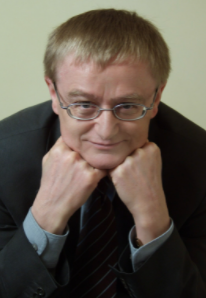 Waldemar Martyniuk is a Professor at the Institute of Polish Language and Culture for Foreigners of the Jagiellonian University in Krakow, Poland. He holds a PhD in Applied Linguistics and is a teacher trainer, author of several textbooks, curricula, and testing materials for Polish as a foreign language. Visiting Professor and lecturer at universities in Germany (Bochum, Giessen, Goettingen, Mainz, Muenster), Switzerland (Basel), and the USA (Stanford University). Seconded to the Council of Europe, Language Policy Division in Strasbourg, France, 2005–2006, and 2008–2013 as Executive Director of the European Centre for Modern Languages in Graz, Austria. Since 2015, he has been Chair of the State Certification Commission for Polish as a Foreign Language, and since 2019, Chair of the Board of Trustees at the Association of Language Testers in Europe (ALTE).
Waldemar Martyniuk is a Professor at the Institute of Polish Language and Culture for Foreigners of the Jagiellonian University in Krakow, Poland. He holds a PhD in Applied Linguistics and is a teacher trainer, author of several textbooks, curricula, and testing materials for Polish as a foreign language. Visiting Professor and lecturer at universities in Germany (Bochum, Giessen, Goettingen, Mainz, Muenster), Switzerland (Basel), and the USA (Stanford University). Seconded to the Council of Europe, Language Policy Division in Strasbourg, France, 2005–2006, and 2008–2013 as Executive Director of the European Centre for Modern Languages in Graz, Austria. Since 2015, he has been Chair of the State Certification Commission for Polish as a Foreign Language, and since 2019, Chair of the Board of Trustees at the Association of Language Testers in Europe (ALTE).
Dr Piotr Romanowski
The Faculty of Applied Linguistics/ the University of Warsaw, Poland
POLISH L3 TEACHERS’ PERCEPTIONS OF MULTILINGUALISM: LANGUAGE AWARENESS, CROSS-LINGUISTIC INFLUENCE AND THE FACILITATIVE ROLE OF L2 ENGLISH
Research has shown that multilinguals demonstrate superior metalinguistic and metacognitive abilities, such as the ability to draw comparisons between different languages and to reflect on and employ appropriate learning strategies. However, it has also been accentuated that multilingualism does not automatically enhance further language learning if learners are not supported by the school environment. Learning L3, L4 or Ln is attained best when language users avail themselves and are aware of the existence of their overall linguistic knowledge. In consequence, teachers’ understanding of and beliefs about multilingual pedagogies are central as they affect the manner in which a language learner’s multilingualism is facilitated in the educational setting. That being said, it may be assumed that the knowledge of teachers’ perceptions is critical and central to the understanding of their decision-making processes in the classroom as well as dilemmas pertaining to multilingual pedagogies.
In this talk, I will discuss L3 foreign language teachers’ beliefs about multilingualism and multilingual pedagogies. I will draw on the data collected through focus-group discussions conducted with 2 cohorts of Polish L3 teachers (of German, French and Spanish). A careful analysis, qualitative in nature, revealed a few recurring themes, e.g. language awareness, prior linguistic knowledge, cross-linguistic influence, the use of multilingual pedagogies, i.e. translanguaging, and the auxiliary role of L2 English. Their meticulous examination sheds light on the urgency of training teachers in the use of multilingual pedagogies.
Keywords: multilingual pedagogies, L3 learning, English, teachers’ perceptions, translanguaging, language awareness, cross-linguistic influence
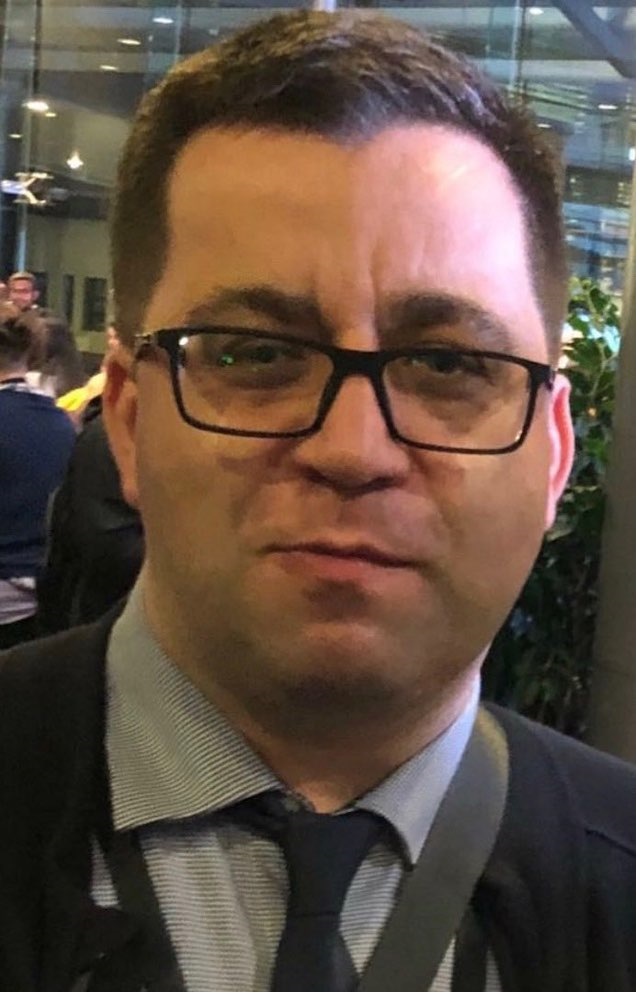 Dr Piotr Romanowski is an Assistant Professor at the Faculty of Applied Linguistics of the University of Warsaw, Poland. His academic interests are at the intersection of bi-/multilingual education and sociolinguistics. His latest monograph Family Language Policy in the Polish Diaspora: A Focus on Australia will be published by Routledge in April 2021. He is Chief Editor of Journal of Multilingual Theories and Practices. He is the founding member of MultiLingNet – a network for scholars investigating multilingualism and multilingual education. He has lectured at Florida International University, Carleton University, Victoria University of Wellington, University of Sao Paulo, University of Johannesburg, National Chengchi University and many others.
Dr Piotr Romanowski is an Assistant Professor at the Faculty of Applied Linguistics of the University of Warsaw, Poland. His academic interests are at the intersection of bi-/multilingual education and sociolinguistics. His latest monograph Family Language Policy in the Polish Diaspora: A Focus on Australia will be published by Routledge in April 2021. He is Chief Editor of Journal of Multilingual Theories and Practices. He is the founding member of MultiLingNet – a network for scholars investigating multilingualism and multilingual education. He has lectured at Florida International University, Carleton University, Victoria University of Wellington, University of Sao Paulo, University of Johannesburg, National Chengchi University and many others.
TEACHING AND ASSESSING CROSS-LINGUISTIC MEDIATION: A EUROPEAN PRIORITY
Dr Maria Stathopoulou
ME.T.L.A Project Coordinator/ European Centre of Modern Languages, Council of Europe
Adjunct Lecturer/ Hellenic Open University, Greece
This presentation sees mediation as a European priority in the field of language didactics and discusses certain landmarks regarding how it became a top priority. It is argued that the Common European Framework of Reference for Languages (CEFR) of the Council of Europe (2001) and its expanded version, the new CEFR Companion Volume (2020) can function as crucial tools to teach and assess mediation. On a more practical level, the presentation deals with the ME.T.L.A project (“Mediation in Teaching, Learning and Assessment”), a European project which is being currently carried out within the framework of the new programme of the European Centre of Modern Languages (ECML) of the Council of Europe (2020-2023). What is ultimately suggested is a plurilingual approach to the teaching of languages through the use of cross-linguistic mediation activities for the development of learners’ plurilingual and pluricultural competence, a concept put forward by the CEFR 20 years ago. Examples of such activities are presented and discussed with the view to raising participants’ awareness as to how mediation can be taught and assessed in the language classroom.
Keywords: cross-linguistic mediation, mediation tasks, European projects
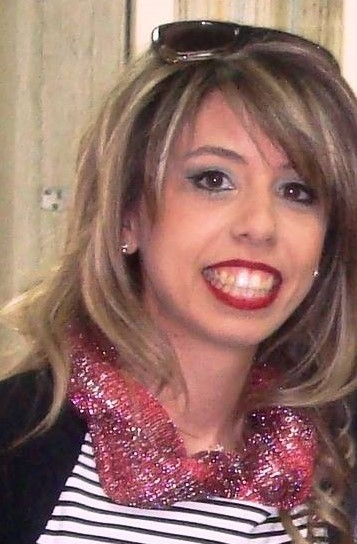 Dr Maria Stathopoulou is an Adjunct Lecturer at the Hellenic Open University and at the National Technical University of Athens. Since 2007, she has been a Research Fellow at the RCeL, University of Athens and a member of the English team preparing the national exams for the Greek State Certificate of Foreign Language Competence (known as KPG exams). From 2014-2017, she was a member of the authoring group of experts of the Council of Europe concerning the update of the CEFR. Recently (2020-2021), her project “Mediation in Τeaching, Learning and Αssessment” (ME.T.L.A.) is being funded by the European Centre of Modern Languages (ECML) of the Council of Europe (2020-2023). Dr Stathopoulou’s book “Cross-Language Mediation in Foreign Language Teaching and Testing” (2015) has been published by Multilingual Matters. Her second book concerns the teaching of ESP in academic contexts.
Dr Maria Stathopoulou is an Adjunct Lecturer at the Hellenic Open University and at the National Technical University of Athens. Since 2007, she has been a Research Fellow at the RCeL, University of Athens and a member of the English team preparing the national exams for the Greek State Certificate of Foreign Language Competence (known as KPG exams). From 2014-2017, she was a member of the authoring group of experts of the Council of Europe concerning the update of the CEFR. Recently (2020-2021), her project “Mediation in Τeaching, Learning and Αssessment” (ME.T.L.A.) is being funded by the European Centre of Modern Languages (ECML) of the Council of Europe (2020-2023). Dr Stathopoulou’s book “Cross-Language Mediation in Foreign Language Teaching and Testing” (2015) has been published by Multilingual Matters. Her second book concerns the teaching of ESP in academic contexts.
MEDIARE NECESSE EST
Jolanta Urbanikowa
The Rector’s Deputy for Bologna Process and Organisation of Language Provision,
the University of Warsaw, Poland
It is a responsibility of education systems also to make sure citizens know what their rights are and to provide them with appropriate tools to understand them. The obligations of education systems (including higher education) in this respect are covered in the adopted in January 2018 Council Recommendations on Key Competences for Lifelong Learning. The reference framework sets out eight key competences, and among them – languages competence and civic competence, both being exceptionally important from the point of view of language rights and language of rights. The presentation will provide reasons why mediation should be an indispensable element of education, and in particular language education.
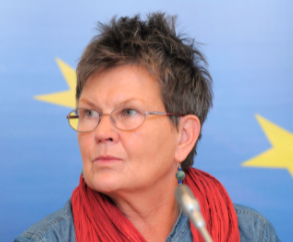 Jolanta Urbanikowa, academic teacher at the Centre for Foreign Language Teaching, is the Rector’s Deputy for Bologna Process and Organisation of Language Provision at the University of Warsaw, Poland. She is the coordinator of the University System for Language Provision, a member of the University Council for Teaching and Learning and Bologna Group of the Conference of Rectors of Academic Schools in Poland (CRASP), an expert at EC EACEA and FRSE (Foundation for the Development of Educational Systems); a member of the Council of the Centre for Foreign Language Teaching and the Programme Council of the Digital Competence Centre at the University of Warsaw. Jolanta Urbanikowa has been engaged in a number of European projects on quality of language education as part of Socrates and Lifelong Learning projects, Erasmus, Erasmus+, as well as UNICA (Universities in Capital Cities of Europe) network. She is the author of publications on language policy in higher education, quality provision, Bologna process, and qualification frameworks. Her academic and professional interests include language policy, quality of language education, European educational programmes, Bologna process.
Jolanta Urbanikowa, academic teacher at the Centre for Foreign Language Teaching, is the Rector’s Deputy for Bologna Process and Organisation of Language Provision at the University of Warsaw, Poland. She is the coordinator of the University System for Language Provision, a member of the University Council for Teaching and Learning and Bologna Group of the Conference of Rectors of Academic Schools in Poland (CRASP), an expert at EC EACEA and FRSE (Foundation for the Development of Educational Systems); a member of the Council of the Centre for Foreign Language Teaching and the Programme Council of the Digital Competence Centre at the University of Warsaw. Jolanta Urbanikowa has been engaged in a number of European projects on quality of language education as part of Socrates and Lifelong Learning projects, Erasmus, Erasmus+, as well as UNICA (Universities in Capital Cities of Europe) network. She is the author of publications on language policy in higher education, quality provision, Bologna process, and qualification frameworks. Her academic and professional interests include language policy, quality of language education, European educational programmes, Bologna process.
MEDIATION: THE SHOCK OF THE OLD OR THE NEW?
Andrew Walkley
National Geographic Learning/ Lexical Lab, The United Kingdom
While the CEFR is at pains to state that mediation can take place within the same language, the reality is that it blows a hole in monolingual modes of language teaching. I will also argue that it should represent a shift to teaching as a mediator themselves responding to students and lessons that are focused more on lexis and less on grammatical accuracy.
 Andrew Walkley has 25 years experience as a teacher, trainer and materials writer. He is the co-author of several coursebook series – Outcomes, Innovations and Perspectives (National Geographic Learning) and the methodology book Teaching Lexically (Delta/ Klett). He is also the co-director of Lexical Lab (lexicallab.com), an educational services provider specialising in course design and consultancy, materials writing and teacher training. Lexical Lab runs a summer school in London for teachers and other people in English Language education.
Andrew Walkley has 25 years experience as a teacher, trainer and materials writer. He is the co-author of several coursebook series – Outcomes, Innovations and Perspectives (National Geographic Learning) and the methodology book Teaching Lexically (Delta/ Klett). He is also the co-director of Lexical Lab (lexicallab.com), an educational services provider specialising in course design and consultancy, materials writing and teacher training. Lexical Lab runs a summer school in London for teachers and other people in English Language education.
